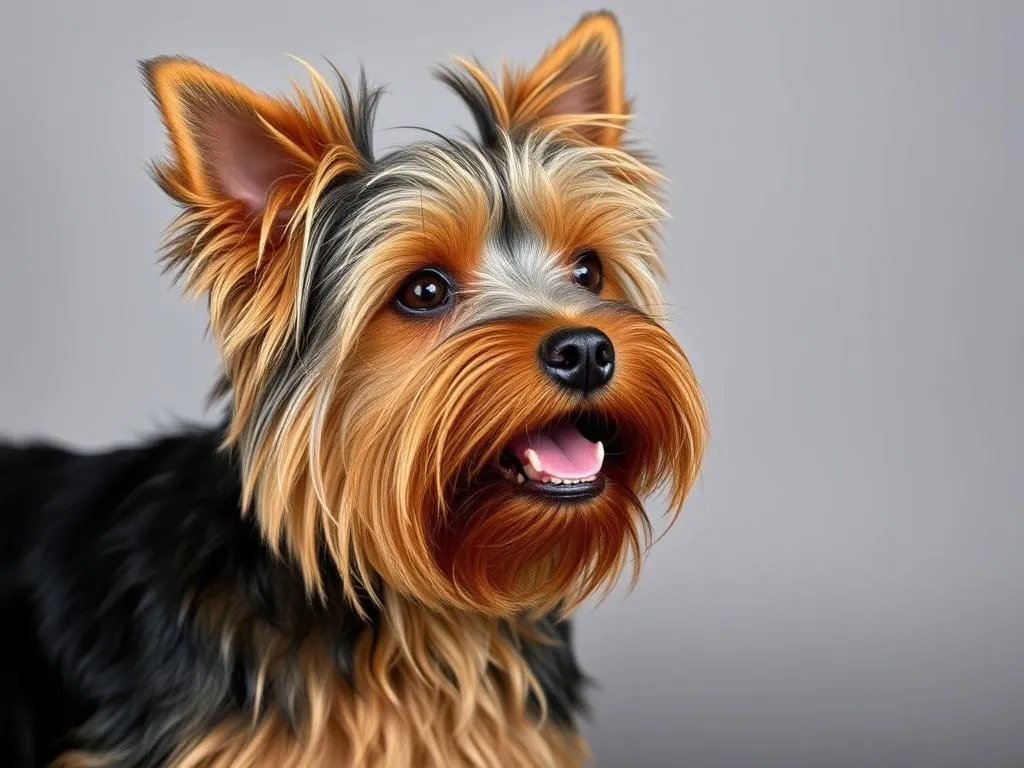
Introduction
Dog breeds come in a stunning array of shapes, sizes, and temperaments, each offering unique qualities that cater to different lifestyles and preferences. Among these breeds, the Yorkshire Terrier stands out not only for its charming appearance but also for its vibrant personality. This breed has captured the hearts of many dog lovers around the world, making it one of the most popular companion dogs. Understanding the characteristics, history, health considerations, and living requirements of the Yorkshire Terrier is crucial for anyone considering welcoming this delightful breed into their home.
History of the Yorkshire Terrier
Origin of the Breed
The Yorkshire Terrier originated in England during the 19th century, specifically in the West Riding of Yorkshire. This breed was developed to catch rats in clothing mills and coal mines, showcasing its tenacity and bravery. Early Yorkshire Terriers were much larger than the ones we see today and were bred from a mix of several terrier breeds, including the Waterside Terrier and the Skye Terrier.
Development of the Breed Over the Years
As the industrial revolution progressed, the need for ratting dogs diminished, leading to the Yorkshire Terrier’s transition from a working dog to a beloved companion. By the late 1800s, the breed started gaining recognition, and in 1885, the Yorkshire Terrier was officially recognized by the American Kennel Club (AKC).
Influence of Yorkshire Terriers in Popular Culture
The Yorkshire Terrier has not only made its mark as a household pet but has also become a symbol of luxury and elegance in popular culture. Famous Yorkshire Terriers, such as the one owned by the fictional character Elle Woods in “Legally Blonde,” and notable real-life companions of celebrities, have contributed to the breed’s glamorous reputation.
Characteristics of the Yorkshire Terrier
Physical Attributes
The Yorkshire Terrier is a small, toy breed, typically weighing between 4 to 7 pounds and standing about 7 to 8 inches tall at the shoulder. Its long, silky coat is a striking blend of blue and tan, which requires regular grooming to prevent matting. Distinctive features include its erect ears and long, flowing tail, which give it an elegant appearance.
Temperament and Personality
This breed is known for its spirited and lively demeanor. Yorkshire Terriers are affectionate and loyal, often forming strong bonds with their owners. They are generally good with children but can be wary of other pets, especially if not socialized early. Their bold nature means they don’t typically shy away from asserting themselves, making proper training essential.
Intelligence and Trainability
Yorkshire Terriers are intelligent and eager to please, which can make them relatively easy to train. However, their stubborn streak can pose challenges. Consistent, positive reinforcement training methods work best, and early socialization is crucial to help them become well-rounded companions.
Health Considerations
Common Health Issues Associated with Yorkshire Terriers
Like all breeds, Yorkshire Terriers can be prone to certain health problems. Common issues include:
- Dental Problems: Due to their small mouths, they often suffer from overcrowded teeth and periodontal disease.
- Luxating Patella: This is a common knee issue where the kneecap dislocates, causing pain and mobility problems.
- Hypoglycemia: Small dogs like Yorkies can experience low blood sugar, especially if they miss meals.
Importance of Regular Veterinary Check-Ups
Regular check-ups with a veterinarian are essential for maintaining the health of your Yorkshire Terrier. Vaccinations, dental care, and routine health screenings can help prevent or catch health issues early.
Preventative Care and Health Maintenance
Maintaining your Yorkshire Terrier’s health involves several practices:
- Nutrition and Diet: A balanced diet tailored to their small size and energy levels is crucial.
- Exercise Needs: While they may be small, Yorkshire Terriers are active and require regular exercise to stay healthy.
- Grooming Requirements: Regular grooming not only keeps their coat healthy but also helps prevent skin issues and matting.
Living with a Yorkshire Terrier
Ideal Living Conditions
Yorkshire Terriers adapt well to various living conditions. They are suitable for apartment living due to their small size, but they do require regular walks and playtime. Additionally, they thrive in a climate-controlled environment, as they can be sensitive to extreme temperatures.
Daily Care Routines
Daily care routines for your Yorkshire Terrier should include:
- Feeding Schedules and Dietary Needs: Small, frequent meals are ideal for maintaining their energy levels and preventing hypoglycemia.
- Exercise Requirements and Playtime: Regular walks and interactive play sessions are essential to keep them mentally and physically stimulated.
Socialization and Training Needs
Early socialization is vital for Yorkshire Terriers to develop good manners and reduce any aggressive tendencies. Engaging in puppy classes or playdates can provide valuable experiences. Consistent training techniques that emphasize positive reinforcement will help to instill good behavior.
Yorkshire Terrier as a Family Pet
Compatibility with Different Family Dynamics
Yorkshire Terriers can thrive in various family settings, including those with children and other pets. However, supervision is necessary, especially with younger children, to ensure that playtime is gentle and safe.
Benefits of Having a Yorkshire Terrier in the Family
The Yorkshire Terrier is known for its unwavering loyalty and companionship. These dogs often provide emotional support and can help strengthen family bonds through shared care routines and activities.
Tips for Introducing a Yorkshire Terrier to Your Family
When introducing a Yorkshire Terrier to your family, consider the following tips:
- Allow the dog to acclimate to its new environment at its own pace.
- Supervise interactions with children and other pets.
- Establish a routine that includes feeding, walks, and playtime to help your new pet feel secure.
Choosing a Yorkshire Terrier
Where to Find a Yorkshire Terrier
When looking to add a Yorkshire Terrier to your family, consider these options:
- Reputable Breeders: Ensure that breeders are responsible, following ethical breeding practices and providing health certifications.
- Adoption and Rescue Options: Many rescue organizations specialize in Yorkshire Terriers, offering a chance to provide a loving home to a dog in need.
What to Look for When Selecting a Puppy
When selecting a Yorkshire Terrier puppy, look for:
- Health certifications from the breeder or shelter.
- A lively and engaging temperament.
- Clear communication with breeders or shelters about the puppy’s background and any health concerns.
Initial Costs and Ongoing Expenses
The initial cost of acquiring a Yorkshire Terrier can vary based on location and breeder reputation. Be prepared for ongoing expenses, including:
- Purchase or adoption fees
- Routine veterinary care
- Nutrition and grooming supplies
Conclusion
The Yorkshire Terrier is more than just a pretty face; it’s a spirited, loyal companion that can bring joy to any household. Understanding this breed’s history, characteristics, health considerations, and care requirements is essential for potential owners. As with any pet, the responsibility of dog ownership comes with challenges and rewards. If you’re considering a Yorkshire Terrier, you’re in for a loving and delightful journey.
Feel free to reach out with any questions or share your experiences with this charming breed!









